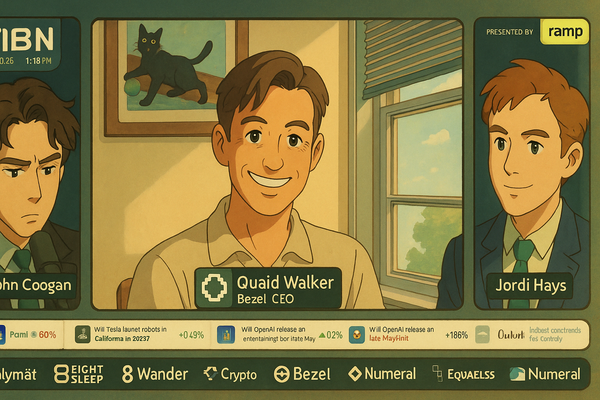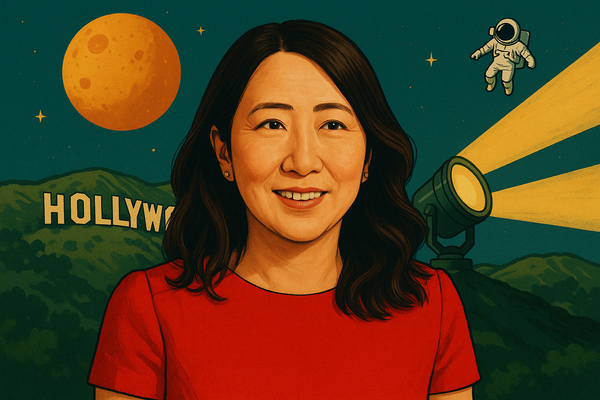Investigating influence
Influencers have taken over the self-help industrial complex

The Rebooting’s next online forum is on April 10 at 1pmET. We’re discussing how publishers can adapt their strategies in a post-traffic era. This is a topic that comes up in pretty much every conversation I have with publishers. At a dinner The Rebooting held last week, one publisher told me their traffic from search is down 60% over the past year.
Dotdash Meredith chief innovation officer Jon Roberts will break down how Dotdash Meredith is back to growth in its core properties. Viafoura CEO Mark Zohar will speak to how publishers can embrace community strategies to mitigate the vicissitudes of algorithms. These are free to attend, interactive events, with a heavy emphasis on audience participation. Join us for the hour-long session. Thanks to Viafoura for the support.
Recommendations
On this week’s episode of The Rebooting Show, I spoke to writer John McDermott about his recent expose of self-help guru Jay Shetty and what it says about the chaotic Information Space. We delve into the paradox of influencer culture, where authenticity is a currency, even if the influencers themselves are as flawed as the general population. There’s often a blurry line between fake-it-’til-you-make-it and fraud. Listen to the episode on Apple | Spotify | Other podcast platforms
Derek Thompson makes a cogent argument for the U.S. government focing a sale of TikTok. The most salient part for me is less reciprocity – we treat information differently than authoritarian societies – and more the changing nature of how people obtain information requires a different approach to algorithmic platforms like TikTok that are owned by foreign entities.
Get ready for the anti-smartphone movement. The backlash against social media is moving to what Silicon Valley podcasters would call “first-principles thinking.” The downside impact of social media is now well known, as is the problem of algorithmic recommendations, but the root cause of many negative outcomes is the core technology of the smartphone.
Middle managers in the age of AI. The vibe shift in the boss class is to get lean. Say what you want about Elon Musk’s reign at Twitter/X, but he’s had a catalyzing influence in the reshaping of organizations to be flatter. The middle managers are easy targets for corporate leaders wanting to show their boards and shareholders they’re extremely hard core. Long term, I think we’ll see a reconception of management layers to be fewer and more often filled with player coaches rather than coordinators, as much of that rote work should be automated. Bayer is attempting to do this by not just culling thousands of managers but also shifting mangers to work “shoulder-to-shoulder with their charges on small-team projects.”
Podcast recommendation: My First Million. I’ve grown to appreciate the upbeat dynamic between Sam Parr and Shaan Puri. The recent episode with 37signals founder Jason Fried is terrific. The way he’s built 37signals – moving from an agency to product company, skipping venture for cashflow-driven growth – will become the norm again. “Lifestyle business” as a pejorative was a zero-interest phenomenon.
Investigating influence

Never before in history have so many people been so famous. The fracturing of mass media into millions of shards in the Information Space has spawned a mind-boggling number of influencers and creators who command the attention and even loyalty of varying sizes of audiences.
One of the most vibrant areas of the Information Space has been the rise of self-improvement media, which promises people the path to a better life. In my mind, it’s the successor to the grocery store checkout aisle magazines that offer an easy path to washboard abs in just six weeks. Beach season is coming.
Now, the self-improvement genre has moved beyond mass media and merged with the creator economy to produce everything from inspiring LinkedIn posts to Gary Vee telling us caring is the killer app to the lifestyle gurus who peddle how to optimize your way into being a better person along various vectors, from health to spirituality to relationships. None of this is new – much of it is reheated Dale Carnegie pablum mixed with elements of Toastmasters – there’s just a lot more of it and the most important players are more likely to be individuals, not institutional media brands.
Reading the exposé of neuroscientist/podcaster Andrew Huberman yesterday, I was already primed for what I’d get. I know the rough outlines of Huberman as a scientist turned podcaster and lifestyle guru who had captured the minds of many middle-aged men by promising them the elixir of vitality. What’s more, he did it with science. This is horoscopes for men.
I figured the piece would poke holes at his expert standing. But instead, it was an examination of his moral turpitude in juggling several relationships at once and naturally not being very honest about the game he was playing.
Here we have a rich, powerful, middle-aged man who was using that leverage to live the life of a rogue. I knew one thing for sure: This takedown piece would not do much to dent his legions of middle-aged male fans who are eager adherents to his formula for optimizing their lives. Rich and famous men tend to go down these paths. (The “logistical acuity” alone deserves recognition.) These kinds of pieces leave me with the same feelings I had in 1984, when 20/20 investigated whether pro wrestling was “real.”
The Information Space marketplace rewards narrative and sanding the edges of reality. We tend to overrate how much people want truth. As Jeff Bezos has noted, we are by nature social animals, not truth seekers.




